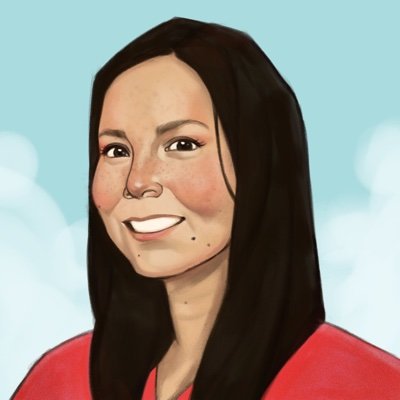
In early August of this year, before the number of new Coronavirus disease cases had yet to reach its peak, Kristian Lum was wrapping up a project with epidemiologists and collegiate academics that modeled the spread of COVID-19 in jails.
The work was an effort to look at the many ways in which the rate of transmission could be reduced, and it wasn’t Kristian’s first experience with studying data around communicable diseases.
In 2013, she was working at the Virginia Bioinformatics Institute, simulating epidemic outbreaks. It was here — creating realistic population models to mimic the spread of disease in pragmatic ways — that she first began thinking of applying statistical expertise to issues of social justice.
“One of the things I was thinking about was applying the methods that we were using to model incarceration is, as a contagious disease,” says Kristian in a recent ACM Bytecast episode. “It was really a fairly direct move. I was applying the same sorts of methods that we were using to simulate things like the spread of infectious disease through a population, to think about what sorts of social influence can cause close associates of people who are incarcerated, to themselves become incarcerated.”
Positions in academia and industry, working with nonprofits and politicians, has given Kristian a unique and multi-faceted perspective: “stark disciplinary boundaries” are not necessary. She uses her methodology from training as a statistician to guide her research in algorithmic fairness and transparency.
Wearing multiple hats and juggling various roles is nothing new to Kristian. In an interview with CIS, the Duke graduate described her path as a “winding” one, each varied experience leading to another not-so-predictable professional move.
“It’s really helped me to see problems from a variety of perspectives,” says Lum. “When you’re in academia, you tend to see it from the perspective of other academics who’ve come before you, from what makes it into the academic literature. Those perspectives aren’t always the same as, what you get when you work for, say, a nonprofit. A lot of the work there, I was listening to advocacy groups, or listening to lawyers, or policy makers.”
Kristian is currently a member of the Executive Committee for the ACM Conference on Fairness, Accountability, and Transparency (ACM FAccT). Her research in the field of health care has recently pivoted to focus on developing a tool for predicting PPE consumption by hospitals as a function of projections of the number of COVID-19 patients in the future.
Much in line with her professional boldness, Kristian has plans to shake things up in the world of statistical prediction.
“One thing I’m interested in doing in the future is sort of flipping the script on various machine learning or statistically-based prediction tools,” says Lum. “Oftentimes they will be pointed at predicting the risk an individual poses to society, or measure something like whether they’ll be arrested. I’d like to try and flip the script in some ways by using similar data sets and make predictive tools that sort of predict the risk the system poses to that individual.”
Early this year, we had the pleasure of welcoming Kristian Lum into the Penn community, in several capacities. She serves key roles in Penn’s AlgoWatch Initiative and the Warren Center for Network and Data Science. She is a Senior Fellow with Penn’s Leonard Davis Institute of Health Economics (LDI). And, much to our delight, Kristian is also one of CIS’s newest Research Assistant Professors. Welcome again, Kristian!